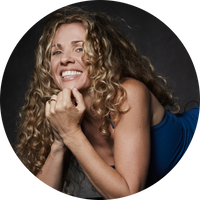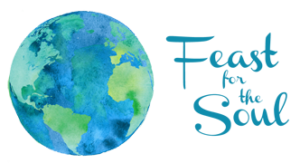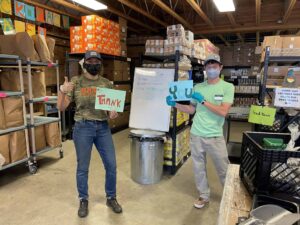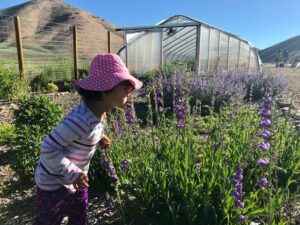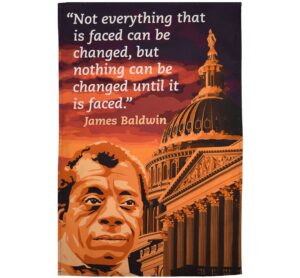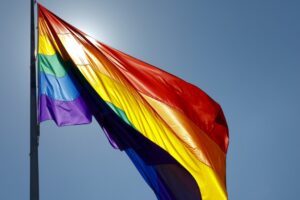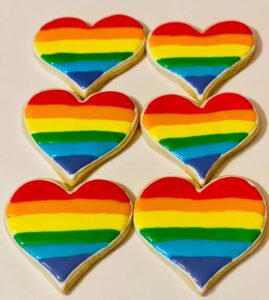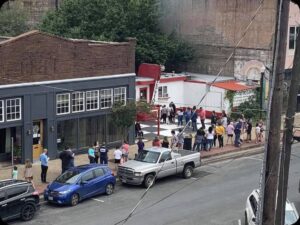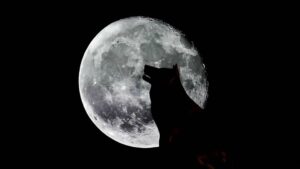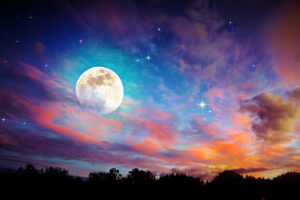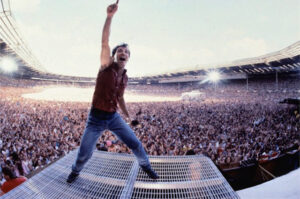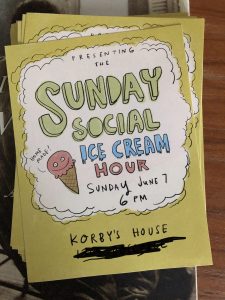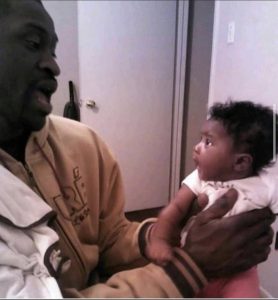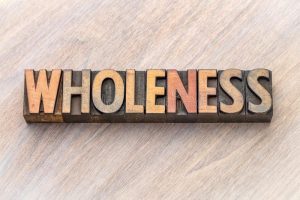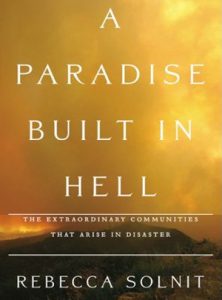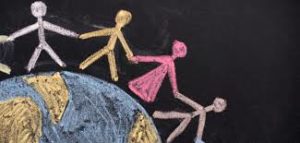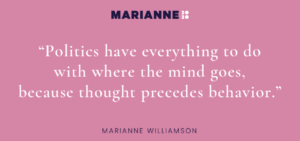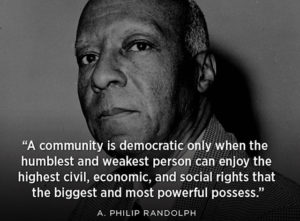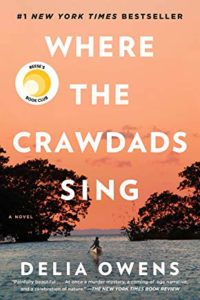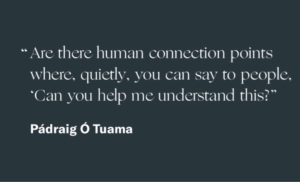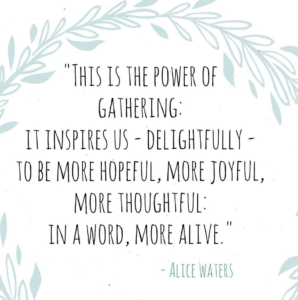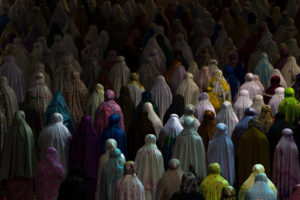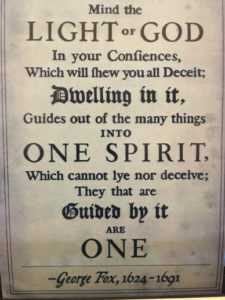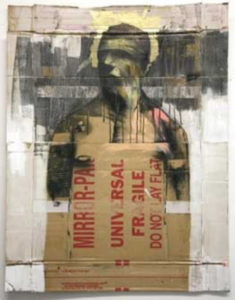community
Tuesday, February 15th, 2022
February 15, 2022Power Path
|
From author and yogi Sean Corn:
‘This February full moon, the Snow Moon, rising at the peak of our North American winter, symbolizes the challenges we all face when the world seems cold, dark, and stark.
Basking in the chilly illumination of this deep and reflective moon can allow us to confront our internal challenges, eliminate unhealthy physical and emotional habits, and release the resentments, resistance, and limiting beliefs that often keep us stuck in a cycle of self-sabotage. The full Snow moon brings a sense of renewed focus.’
Our Hunger Coalition
November 5, 2021Blaine County, Idaho
While hunger and housing crises have plagued our community for decades, we’ve reached a breaking point. If we don’t make some big decisions in support of working folks, everything we love about our community will be lost.
Recently, we participated in a 50 year vision exercise facilitated by our friend Estefania Mondragon, executive director of PODER of Idaho. Together, our team envisioned what a healthy community will look like decades from now.
Predictably, we envisioned a place with farm-fresh food everywhere. A place where edible gardens and forests grow from every inch of free dirt. We looked to the power of our relationships and dreamed of youth and elders taking care of one another and neighbors sharing meals with abandon. Nice, right?
But there was more to it than that. When we dreamed of the future, working people had somewhere to live, somewhere safe to raise their children; they had medical care, childcare, education, and fair wages. Hunger was something kids learned about in history books.
Then things got harder. Estefania challenged us to name the changes we need to make today to fulfill this vision in fifty years. We are building a plan of action from these very things.
As we draft this plan, there are actions we can all take today to pave the way.
- You can choose leaders who put their energy into our most pressing community needs.
- You could follow the youth activists in our circle and take your message straight to Washington.
- You could join a rally, make a sign, or share an article on social media.
- You can make a donation to The Hunger Coalition so we can not only provide emergency food in times of crisis, but effectively end hunger long-term.
There are a million little things we can each do in the name of progress. Jump over to social media, share your own 50 year vision, and tell all your friends how you are making a difference today. Onward.
In Gratitude,
The Hunger Coalition Team
hunger coalition.org
Pride.
June 13, 2021C
O
M
M
U
N
I
T
Y
L O V E
T R U T H
Re-Release: The Stonewall Uprising/
You’re Wrong About Podcast
“In honor of Pride Month and revolutions past, present, and future, we’re re-releasing our episode on the Stonewall Uprising. Let the sunshine in.”
https://podcasts.apple.com/gb/podcast/re-release-the-stonewall-uprising/id1380008439?i=1000476881136
One love.
One love, one heart
Let’s join together and a-feel all right
One love (hear my plee)
One heart
Let’s join together and a-feel alright
Let’s join together (let’s just trust in the Lord)
And a-feel all right (and I will feel alright)
Five years ago in Orland, Florida, one 29-year old man with an automatic military weapon massacred 49 people and wounded 53 more at a gay night club called Pulse.
From the White House on Saturday, June 12, 2021:
In the coming days President Joe Biden will sign a bill designating Pulse Nightclub as a national memorial, enshrining in law what has been true since that terrible day five years ago: Pulse Nightclub is hallowed ground.
We must also acknowledge gun violence’s particular impact on LGBTQ+ communities across our nation. We must drive out hate and inequities that contribute to the epidemic of violence and murder against transgender women – especially transgender women of color. We must create a world in which our LGBTQ+ young people are loved, accepted, and feel safe in living their truth. And the Senate must swiftly pass the Equality Act, legislation that will ensure LGBTQ+ Americans finally have equal protection under law.
In the memory of all of those lost at the Pulse nightclub five years ago, let us continue the work to be a nation at our best – one that recognizes and protects the dignity and safety of every American.
In the name of love.
The Equality Act is in limbo. A lot is at stake for the LGBTQ community, especially our youth.
After its passage in the House in February, the Equality Act (H.R. 5) has one more hurdle before reaching the desk of President Joe Biden — the Senate. If passed, among other things, it will amend the Civil Rights Act of 1964 to include sexual orientation and gender identity as protected classes of people protected from discrimination in employment, housing, public accommodations, education and federally funded programs, and patch holes in current nondiscrimination protections.
-San Diego Union Tribune, Kimberly A. Ahrens
Fr. Richard Rohr:
Love for one another. May we place our hope in what matters and what lasts, trusting in your eternal presence and love. Listen to our hearts’ longings for the healing of our suffering world.
Nonviolence starts when we learn how to love ourselves with compassion. Upon beginning shadow work and looking within myself, I was able to heal old wounds, relearn healthy boundaries and thought patterns. Complete love flows through all we say, do, think, and pray after taking steps of transformation. -Susan C./Center for Action and Contemplation
“Moments as big as years.” Virginia Woolf
A bakery lost a client when it made rainbow Pride cookies. So others bought every item in the shop.
Within an hour, the small business near the eastern edge of Texas lost dozens of followers on social media. Not long after, a peeved patron canceled an order she had placed for five dozen cookies.
Little did she know, though, that her post would go viral on social media and that the line outside the tiny bakery would stretch for several blocks the following day.
Though the bakery opened at 10 a.m., a crowd had already assembled outside the front door by 8:30 the next morning.
“That line brought me to tears. All those people standing in the rain, waiting so patiently to buy a cookie,” Cooley said. “We just wanted to be inclusive, and it was so heartwarming to see how many people felt the same.”
Over the following few days, a steady stream of hundreds of customers arrived to show their support.
“The line just never ended. I had people buying cookies for the person behind them, buying cookies and handing them out to the kids outside. It was beautiful.” Dolder said. “They weren’t going to let this little bakery take a financial hit for showing love and acceptance for the gay community.”
https://www.washingtonpost.com/lifestyle/2021/06/09/pride-month-rainbow-bakery-customer/
The day after Confections received backlash for supporting Pride Month, hundreds of customers lined up to buy cookies and show their support. (Jay Eagle)
Communion of Saints
March 15, 2021Richard Rohr and The Center for Action & Contemplation
The Seven Homecomings
The Seven Homecomings, a practice taught by Tibetan Buddhist Lama Rod Owens, invite us to recognize and honor our own personal “circle of care.” These instructions are just a template; let this practice change to meet your needs. Pause briefly between each section.
- Begin contemplating the first homecoming of the guide. Reflect on any being who has been a guide, a teacher, a mentor, an adviser, or an elder for you. Reflect on the beings in your life whom you’ve gone to for guidance and support. . . . Invite them to gather around you in a circle and say welcome. Relax. Inhale. Exhale and come home to being held by your guides.
- The second homecoming is your wisdom texts. [Reflect] on any text that has helped you to deepen your wisdom. These texts can include any writing, books, teachings, sacred scriptures . . . that have helped you to experience clarity, openness, love, and compassion. . . . Say welcome to your texts. Relax. Inhale. Exhale and come home to being held by your wisdom texts.
- The third homecoming is community. Begin by reflecting about the communities, groups, and spaces where you experience love or the feeling of being accepted and supported in being happy. . . . Where do you feel safe to love? Where are you being loved? . . . Say welcome to your communities. Relax. Inhale. Exhale and come home to being held by your communities.
- The fourth homecoming is your ancestors. Begin by reflecting on those ancestors who have wanted the best for you, including wanting you to be happy and safe. You don’t need to know who those ancestors are. . . . Also reflect on the lineages you feel connected to, like the lineage of your spiritual tradition, or tradition of art or activism. . . . As you invite your ancestors, remember that you too are in the process of becoming an ancestor. . . . Say welcome to your ancestors and lineages. Relax. Inhale. Exhale and come home to being held by your ancestors and lineages.
- The fifth homecoming is the earth. Begin by reflecting on . . . how [the earth] sustains your life and the lives of countless beings. . . . Coming home to the earth means touching the earth, acknowledging the earth . . . and allowing it to hold you and, as it holds you, understanding that it is loving you as well. . . . Say welcome to the earth. Relax. Inhale. Exhale and come home to being held by the earth.
- The sixth homecoming is silence. Begin by reflecting on the generosity of silence as something that helps you to have the space to be with yourself. . . Reflect on how you can embrace silence as a friend and/or lover invested in your health and well-being. . . . Say welcome to the silence. Relax. Inhale. Exhale and come home to being held by the silence.
- Finally, the seventh homecoming is yourself. Begin by reflecting on your experiences of your mind and body. Consider how your experiences are valuable, important, and crucial. Invite all the parts of yourself into your awareness, including the parts of yourself that seem too ugly or overwhelming. Say welcome to yourself. Relax. Inhale. Exhale and come home to yourself.
Now imagine that your circle of benefactors begins to dissolve into white light, and gather that white light into your heart center. Rest your mind and relax.
Lama Rod Owens, Love and Rage: The Path of Liberation through Anger (North Atlantic Books: 2020), 87–91.
Power Path:
Full Moon in Leo is Thursday, January 28 at 12:18 PM Mountain Standard Time. (MST).
‘Also known as the “wolf moon”, this full moon is a perfect time to anchor your passion into something, someplace, and someone that you love. Consider the well being of the collective and community as they are up front and visible as you stretch your container to receive and give support. If you expect magic and miracles, you may just get them. There are many gifts to be had during this time.
Ask for clarity, courage, right action, a good path, loads of support and lots of deserving of the love of spirit.
Blessings,
Lena
~
KTVB-TV
‘Regardless of what time of the month it rises, January’s full moon is often called the Wolf Moon, as people may believe they hear wolves howling more often during this time of the year.
“It was traditionally thought that wolves howled due to hunger, but we now know that wolves use howls to define territory, locate pack members, reinforce social bonds and gather for hunting,” The Old Farmer’s Almanac explains.
The full moon will serve as a great reference point for stargazers trying to find Sirius, the brightest star in the sky.
Sirius will rise around the same time as the moon and will be visible in the same region of the sky, appearing below and off to the right of the Wolf Moon.
In addition to being known as the Dog Star, Sirius is sometimes referred to as the rainbow star because it appears to flicker with different colors as opposed to appearing as a steady white, according to EarthSky.
Bruce’s community.
January 15, 2021‘The first half of Bruce Springsteen’s autobiography makes some things abundantly clear:
He had no natural ability to play the guitar. In fact, after his first lessons, he quit, unable to play a note.
He had no singing talent. Every group he was part of needed a lead singer, and it wasn’t him.
And just about everyone dismissed him. Audiences walked out, his first agent simply stopped returning his calls and bandmates gave up and moved on.
He didn’t even know how to drive a car. Not only wasn’t he dating in high school, he wasn’t even cruising around town, being a charismatic rock star.
Talent is overrated. Skill is acquirable.
Showing up is something almost every creative leader has in common. In business, in the arts, in society. Consistently shipping the work, despite the world’s reaction, despite the nascent nature of our skill, despite the doubts.
And community is essential. The people you surround yourself with can reinforce your story, raise the bar and egg you on.
After the fact, the community becomes an integral part of your story of success. But first, you have to commit to the journey.’
-Seth Godin, author
“Writing about yourself is a funny business…but in a project like this, the writer has made one promise, to show the reader his mind.”
-Bruce
Can we agree at least on this?
It must change. Or go dark.
December 27, 2020From Seth Godin.
Amplify Possibility
“People like us do things like this.”
Social media understands this.
It also knows that people like points, likes and something that feels like popularity.
The social media companies optimized their algorithms for profit. And profit, they figured, would come from engagement. And engagement, they figured, would come from confounding our instincts and rewarding outrage.
Because outrage draws a crowd.
And crowds establish culture.
And a desire to be the leader of a crowd reinforced the cycle.
And so the social networks created a game, a game in which you ‘win’ by being notorious, outrageous or, as they coined the phrase, “authentic.” The whole world is watching, if you’re willing to put on a show.
That’s not how the world actually works. The successful people in your community or your industry (please substitute ‘happy’ for successful in that sentence) don’t act the way the influencers on Twitter, YouTube or Facebook do. That’s all invented, amplified stagecraft, it’s not the actual human condition.
Many of us have an overwhelming need to rubberneck, to slow down when we pass a crash on the highway. This is odd, as most people don’t go out of their way to visit the morgue, just for kicks. And yet…
I hope we’d agree that if people started staging car crashes on the side of the road to get attention, we’d be outraged.
That’s what happening, and the leaders of social networks pretend that they can’t do a thing about it, just as Google pretends that they can’t control the results of their search algorithm.
The shift that the leaders of the social networks need to make is simple. In the long run, it will cost them nothing. And within weeks, it will create a world that’s calmer, happier and more productive.
Amplify possibility. Dial down the spread of disinformation, trolling and division. Make it almost impossible to get famous at the expense of civilization. Embrace the fact that breaking news doesn’t have to be the rhythm of our days. Reward thoughtfulness and consistency and responsibility.
You can do this. Enough already.
A note from Korby.
June 4, 2020Suspending my creative promotions for a moment.
The murder of George Floyd is something we can’t ignore. All of us feel that. If you watched the video of Mr. Floyd’s last moments on earth or even just saw that brutal, incendiary image of the officer’s knee crushing his neck, there is no looking away. The question has been forced.
The question: is it in any way acceptable for an officer of the law to kill a man — unarmed and handcuffed and pleading for mercy — in broad daylight with no provocation whatsoever?
The answer is no. It is not okay. In the name of the most basic definition of human decency, we demand justice for George Floyd.
But then there’s something more.
That photo. The white man’s knee, the black man’s gasp.
I can’t pretend to know what’s in your heart but I can look into my own. The question I keep asking myself is: to what degree am I complicit in George Floyd’s murder?
Sure I wasn’t there at the corner of Chicago Ave and East 38th in Minneapolis. But the fact remains that I am a benefactor, an inheritor of centuries of white privilege, white provision. The law purports Liberty and Justice for All, but even after two centuries of reform, the law is on my side first.
That officer’s knee was in my name. Me. The soft child of the American family, indulged and coddled.
A few freedoms I know and can name: I’m blind to most. I take for granted the world through which I move, as though it were my birthright.
But what would it be like not to have the whole system of justice and economic invention arranged like an armed phalanx behind you? What is it like to be black in America? I cannot know.
But I can listen.
That there are white folks like me awakening to the knowledge of not only our collective biases, but more importantly, the consequences of those biases, is perhaps cause for a quavering hope. It won’t give George Floyd his life back, or Breonna Taylor hers, or restore Ahmaud Arbery, Donnie Sanders, Tony McDade, or the extinguished lives of countless others. It might yield the imperfect consolation of justice. But what next?
What after?
The sense I’ve gotten from talking with my friends and family is that the spirit is willing, but the way forward is uncertain. It’s hard for an individual person, however well-meaning, to know what to do, where to start. I’m not sure whether a post, or a hundred posts, will add up to anything truly meaningful. I don’t know.
Change begins in the heart. Okay fine. But what does that mean? What does change actually look like? I can say any number of things to ally myself with people of color, but is that really a solution? Talk is cheap.
Voting change into office will help. Let’s get busy doing that.
But I’m looking for something personal. I think we all are. It’s not just about police brutality. It’s about wanting to be whole. Whole individuals. Whole people. A whole nation.
Well, what’s possible?
Let’s for once allow ourselves a wild hope. Let’s dare to concede the possibility that maybe, somewhere in the future there’s an integrated America, where Black Lives Matter, where the rights of each individual really are extended to all.
At the very least, maybe it’s possible to be a little more whole.
I’ve been quiet the last few days, mulling over this question. Reading a bunch of different perspectives. Trying to get my thoughts in order. Praying about it.
What would it look like to be a little more whole?
And this is where the death of George Floyd has shined a light in a dark corner of my own heart.
See, I live in a mixed neighborhood in East Nashville.
While its gentrification has been going on for more than fifteen years, I still have neighbors of color. Close neighbors. Two of the houses within a hundred feet of me are occupied by black families.
I have lived in this house for almost five years. I love living here.
But wait. Do I even know my black neighbors’ names?
No.
We have been living in parallel universes.
Worse, there are little kids in the family of one of those houses. What am I teaching them, by never saying hello when I see them playing in the yard? By them never seeing me talk to their parents?
I’m teaching them that white people don’t see them. They are invisible.
By the sheer act of being unneighborly to my literal neighbors, I’m participating in the furtherance of this no-longer-acceptable status quo.
There are other ways I, I know. But allow me to focus on this one for a second.
The question is, who is us? You draw a circle, everyone inside it is us. Great. But where is the boundary — the place where us ends and them begins? How big can we make the circle? I don’t know the answer to that question. But I think, where I live, I can expand my circle of us, even if just a little bit.
When I was a kid growing up in Twin Falls Idaho, it would sometimes happen on summer evenings that my dad would fire up the home made ice cream machine.
There is nothing as distinctive as the nasal whine of the buzzing motor cranking that frothy mixture of milk and sugar into something thick and sweet and frozen. The sound would fill us kids with anticipation. Shivers in our bellies.
Ours was a cheap unit and my dad would have to sit next to the machine on a chair and free up the motor with his hands when it would stall. After a half-hour or so he’d lift the frosty cold canister from the wooden bucket of rock salt and ice. Suddenly all the neighbor kids would magically appear in our driveway. My mom would hand out bowls and spoons and we’d eat our fill as fast as our mouths would let us. It was an unqualified joy.
So I’m going to try something. An experiment.
My friend Laura helped me make a few little handmade flyers. Yesterday I started handing them out to the people on my street — knocking on doors, inviting them to my house this coming Sunday, for an ice cream social.
Just, pop over for a bowl of homemade ice cream and say hello. Everyone welcome.
I have all kinds of neighbors. Young families, white folks, black folks, famous musicians, student renters, a couple people I’m pretty sure voted for Trump. All of us living right next to each other, basically never communicating beyond a wave from the sidewalk.
But what would it look like if we — for the time it takes to eat a little ice cream — act like the neighbors we are, for one hour, one time? I say let’s try it.
The Sunday Social Ice Cream Hour. Folks will come at 6. We’ll be done by 7:30 at the latest. Maybe a lot sooner if no one comes!
Either way I’m gonna do this again and again. I can be fairly relentless when I’ve made up my mind.
It might be amazing. It might be awkward. I don’t know!
The thing is, we have nothing to lose. It’s clear that doing what we’ve been doing is no longer acceptable. For me, change begins at seeing what’s in front of you. Seeing who’s in front of you. Just saying “Hey! What’s Up? Who are you?”
I’m not trying to claim this is the answer. But it might be an answer. To see if we can draw that circle a little bigger. White people living in mixed neighborhoods have a unique opportunity in this critical moment.
And that’s what I have felt these last few days: if not me, who?
Hey man, come over to my house. Bring your kids. Let’s hang out for a few minutes.
Maybe it’s a start. The invites are out. I’ll let you know how it goes.
I’m sorry Mr. Floyd. You didn’t die in vain. My prayer is that some small good can come of this. Maybe we can be a little more whole.
Korby is a writer/producer and singer/songwriter. He currently lives in Nashville.
George Floyd with his baby girl, Gianna.
A gofundme fundraising page has been created for Gianna.
https://www.gofundme.com/f/gianna-floyd-daughter-of-george-floyd-fund
From author Seth Godin:
“When a problem appears too large, too intractable and too unspeakable to deal with, it’s easy to give up.
There never seems to be enough time, enough resources or enough money to make the big problems go away.
Perhaps we can start with a very small part of it. One person, one opportunity, one connection.
Drip by drip, with commitment.”
Dorothy & Rebecca
March 9, 2020Dorothy Day [1997-1980], journalist and social activist, was 8 years old on the night of April 18th, 1906, living in Oakland, during the San Francisco earthquake.
‘There were broken dishes all over the floor, along with books, chandeliers, and pieces of the ceiling and chimney. The city was in ruins, too, temporarily reduced to poverty and need. But in the days after, Bay Area residents pulled together. “While the crisis lasted, people loved each other,” she wrote in her memoir decades later. “It was as though they were united in [compassionate] solidarity. It makes one think of how people could, if they would, care for each other in times of stress, unjudgingly in pity and love” [David Brooks, The Road to Character, 2015, pp. 74-75.].’
‘Writer and editor Paul Elie has said, “A whole life is prefigured in that episode”…the crisis, the tense of God’s nearness, the awareness of poverty, the feeling of loneliness and abandonment, but also the sense that that loneliness can be filled by love and community, especially through solidarity with those in the deepest need [Brooks, p. 75].’
The most startling thing about disasters, according to award-winning author Rebecca Solnit, is not merely that so many people rise to the occasion, but that they do so with joy. That joy reveals an ordinarily unmet yearning for community, purposefulness, and meaningful work that disaster often provides.
A Paradise Built in Hell is an investigation of the moments of altruism, resourcefulness, and generosity that arise amid disaster’s grief and disruption and considers their implications for everyday life. It points to a new vision of what society could become-one that is less authoritarian and fearful, more collaborative and local.
NYTimes:
“What is this feeling that crops up during so many disasters?” Ms. Solnit asks. She describes it as “an emotion graver than happiness but deeply positive,” worth studying because it provides “an extraordinary window into social desire and possibility.” Our response to disaster gives us nothing less than “a glimpse of who else we ourselves may be and what else our society could become.” Her overarching thesis can probably be boiled down to this sentence: “The recovery of this purpose and closeness without crisis or pressure” without disaster, that is “is the great contemporary task of being human.”
In “A Paradise Built in Hell” Ms. Solnit probes five disasters in depth: the 1906 earthquake and fires in San Francisco, the Halifax munitions cargo ship explosion of 1917, the Mexico City earthquake of 1985, the events of 9/11 and Hurricane Katrina. She also writes about the London blitz, Chernobyl and many other upheavals and examines the growing field of disaster studies [2009].
Community.
September 21, 2019It is not more bigness that should be our goal. It must be to bring people back to … the warmth of community, to the worth of individual effort and responsibility … and of individuals working together as a community to better their lives and their children’s future. -Robert F. Kennedy
Each of us must rededicate ourselves to serving the common good. We are a community. Our individual fates are linked; our futures intertwined. And if we act in that knowledge and in that spirit together, as the Bible says, ‘We can move mountains.’ -Jimmy Carter
Reminder.
August 12, 2019“Our goal is to create a beloved community and this will require a qualitative change in our souls as well as a quantitative change in our lives.”
MARTIN LUTHER KING JR.
democratic (small d) communities
May 20, 2019A. Philip Randolph organized the March on Washington where Dr. King gave his famous “I Have a Dream” speech. He was a civil rights activist, a labor organizer, and instrumental to desegregating the military.
The Marsh Girl
April 13, 2019“Yet in reality, she was only an abandoned child, a little girl surviving on her own in a swamp, hungry and cold, but we didn’t help her. Except for one of her only friends, Jumpin’, not one of our churches or community groups offered her food or clothes. Instead, we labeled and rejected her because we thought was was different. But, ladies and gentlemen, did we exclude Miss Clark because she was different, or was she different because we excluded her? If we had taken her in as one of our own, I think that is what she would be today, If we had fed, clothed, and loved her, invited her into our churches and homes, we wouldn’t be prejudiced against her.”
-Delia Owens
In the Shelter
-Poet and theologian, Pádraig Ó Tuama’s work centres around themes of language, religion, conflict and art.
The Walls in our Neighborhoods
January 8, 2019Courtney Martin
Like many “adult” things I try to explain to her (daughter) these days, this one made little intuitive sense. “Because he doesn’t want our neighbors to be able to get in,” I said.
Our president’s desire for a wall has all but brought our country to a standstill. And while his unforgivable dehumanization of immigrants is deeply rooted in white supremacy, the morning chat with my daughter reminds me that it’s also deeply rooted in America’s obsession with private ownership.
I might not be a white supremacist, but I live in a neighborhood — as you likely do — where we live among fences and organize our lives around the maintenance of our own homes and cars and possessions. When those in the upper middle class need help, as we inevitably do, we hire someone — a house cleaner, a childcare provider, an in-home nurse. We underpay these people and keep them off of our social media feeds. In that way, it’s not just our physical surroundings and stuff that we maintain with a lot of attention and energy; it’s our performance of self-sufficiency.
Each day, in a hundred little ways, elite American families build a mental wall between ourselves — capable, efficient, and deserving — and the others — the weak, sick, addicted, uneducated, undeserving. We may even pity the latter, but we don’t — as a rule — believe that our thriving has anything to do with their struggle. Not really. We have our house, our car, our country. They have theirs.
We may have more empathy for immigrants than President Trump, but our daily actions don’t teach our children that each human being on this planet deserves dignity. We tell our kids to share but do little of it ourselves. Maybe, in addition to fighting his walls and his white supremacy, we should be doing more to welcome our own suffering neighbors.
In other words, where are the places where neglect and a lack of moral imagination exist in my life and in the life of my family? I’m trying not to just tell the story over and over again about how much I abhor this president’s politics, but also tell a new story about us.
Full read:
https://medium.com/@courtwrites/the-walls-in-our-neighborhoods-91d5ef6aa92f
Community spaces.
December 13, 2018Don’t give up.
August 9, 2018‘You have a vision and keep at it, bit by bit it will happen.’
#community
#grassroots
Creating God.
July 25, 2018‘Let’s take a moment to go back in time.
For most of human history, we lived in small groups of about 50 people. Everyone knew everybody. If you told a lie, stole someone’s dinner, or failed to defend the group against its enemies, there was no way to disappear into the crowd. Everyone knew you, and you would get punished.
But in the last 12,000 years or so, human groups began to expand. It became more difficult to identify and punish the cheaters and free riders. So we needed something big — really big. An epic force that could see what everyone was doing, and enforce the rules. That force, according to social psychologist Asim Shariff, was the popular idea of a “supernatural punisher” – also known as God.
Think of the vengeful deity of the Hebrew Bible, known for sending punishments like rains of burning sulfur and clouds of locusts, look and lice.
“It’s an effective stick to deter people from immoral behavior,” says Shariff.
For Shariff and other researchers who study religion through the lens of evolution, religion can be seen as a cultural innovation, similar to fire, tools or agriculture. He says the vibrant panoply of religious rituals and beliefs we see today – including the popular belief in a punishing God – emerged in different societies at different times as mechanisms to help us survive as a species.
This week on Hidden Brain, we explore a provocative idea about the origin, and purpose, of the world’s religions.’
-The Hidden Brain/NPR
The political is spiritual.
Society of Friends
June 25, 2018‘A farm in not a farm without its barn.’
- integrity
- equality
- simplicity
- community
- stewardship of the Earth
- and peace.
From a friend:
“All of us, culturally, and each of us individually, has a piece of the puzzle, a part of the answer; I don’t quite know the question, but I believe that the answer is peace.”
A community paradigm.
May 9, 2018There is simplicity…ease…in kindness, inclusivity, and compassion. Complexity and chaos are created when we allow ‘other’, dominance, greed, and power.
Grace is born in community, communication, and care.
A new paradigm, therefore, is created locally, which in turn effects the collective.
Not government, or policy, or military.
We, the people, can embrace our own dialogue, and meaning, without outside influences born of profit, and alternative motive.
’It’s not that there are no difference—the world is made of infinite variety—rather it is the seizing of differences, the fearing of differences, that keeps us from feeling grace.
Paradoxically, everything in life touches the same center through its uniqueness, the way no two souls are the same, though every soul breathes the same air.
The mind’s worst diseas: the endless deciding between want and don’t want, the endless war between for and against.’ -Mark Nepo
‘Living in community means living in such a way that others can access me and influence my life and that I can get “out of myself” and serve the lives of others. Community is a world where brotherliness and sisterliness are possible. By community, I don’t mean primarily a special kind of structure, but a network of relationships. On the whole, we live in a society that’s built not on community and cooperation but on individuality, greed, and competition—often resulting in oppressive economic systems, unnecessary suffering, and environmental devastation.
Today we might call powers and principalities our collective cultural moods, mass consciousness, or any institutions considered “too big to fail.” These are our idols. We are mostly oblivious to this because we take all our institutions as normal civilization and absolutely inevitable. It is the “absolutely” that makes us blind and allows us to make passing structures into complete idols. Because we partly profit from these frequently collective evils, it doesn’t look like evil at all—but something good and necessary. For instance, I’ve never once heard a sermon against the tenth commandment, “You shall not covet your neighbor’s goods,” because in our culture that’s the only game in town. It is called capitalism, and we live comfortably because of it. It is only our unwillingness to question such powers and principalities, or in any way limit them (which is worship), which makes them into a false god. “The angels of darkness must always disguise themselves as angles of light.
(see 2 Corinthians 11:(14-15)
The individual is largely helpless and harmless standing against the system of disguise and illusion. Thankfully, we’re seeing many people, religious and secular, from all around the world, coming together to form alternative communities for sharing resources, living simply, and imagining a sustainable and nonviolent future. It is hard to imagine there will be a future without them.’
-Richard Rohr

